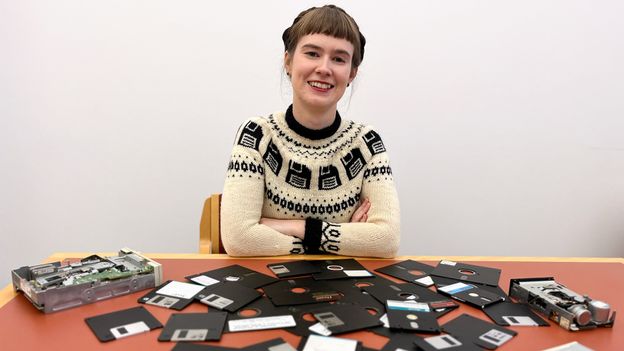That means even if data can be extracted from a floppy disk, there is often significant work needed to make it readable on a modern device. Peter Rees, an archivist at the Cambridge History of Innovation Project, likens the process to a form of translation. “Philologists go to the ancient Latin and translate it into a text we can read in the present,” he says. “That’s what the Future Nostalgia project is doing with this illegible code. We have to use technical apparatus to decipher it and then make it readable.”
This stage is often the most difficult. That’s why some data the Future Nostalgia project has recovered from floppy disks is not yet available to researchers. “With the Stephen Hawking materials, the next part of the process is access,” Talboom says. The difficulty of running old software on modern devices means “it’s quite challenging to make them properly accessible to users”, she adds.
Knowles notes that for archivists working with archaic software, the process of using modern tools can change the look or feel of the original material slightly. “We try to minimise how much we change things,” he says.
For now, Talboom believes the most critical work is simply extracting and saving the data from floppy disks – before it’s too late. “Many floppy disks are 40 or 50 years old,” she says. “The magnetic material they’re written on is starting to degrade. So we have to save them as quickly as possible.”
As well as this technical work for the archivist community, Talboom is also involving the public in her quest to save the forgotten information trapped on floppy disks. On 9 October 2025, she hosted a floppy disk workshop at Cambridge University Library where members of the public could bring old disks they had at home to see what contents are locked inside.
First Appeared on
Source link




